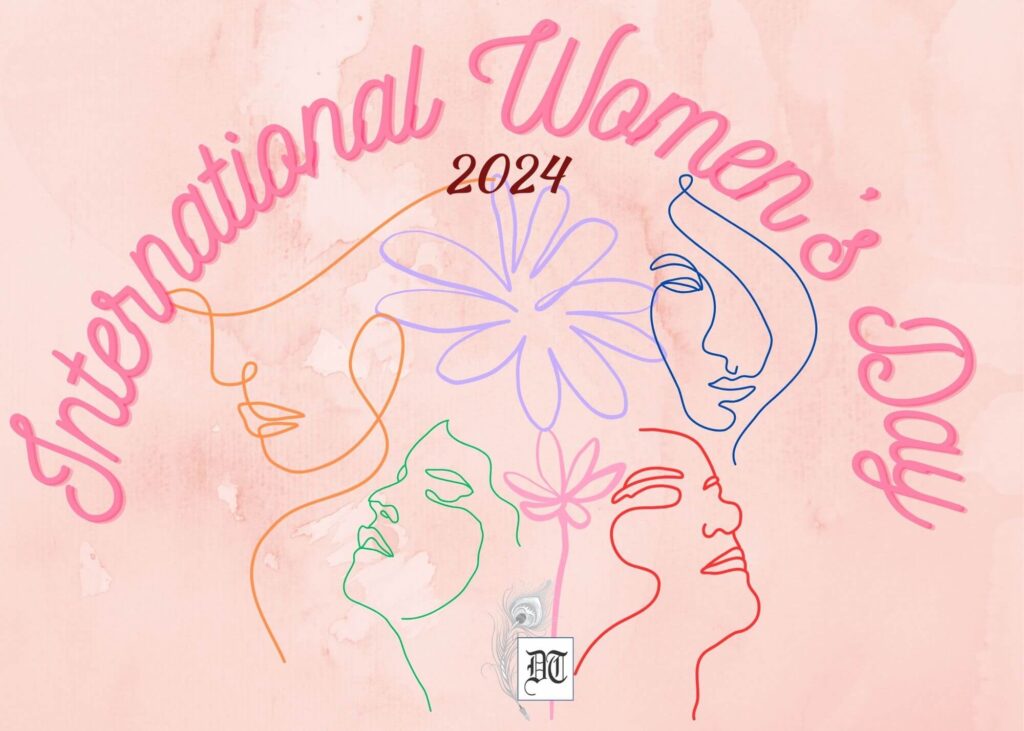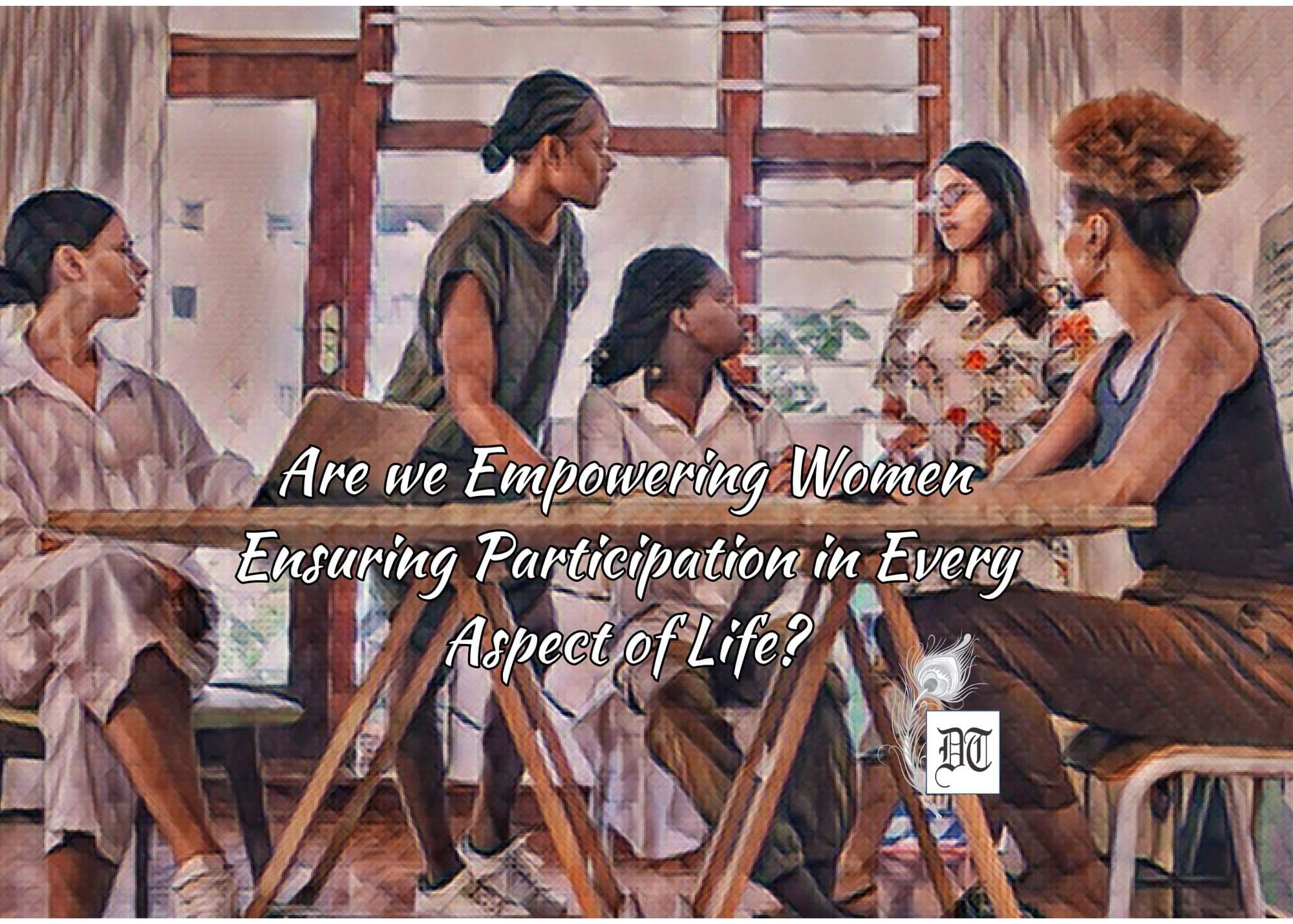Dr. Brajesh discusses women’s empowerment, focusing on improving social, economic, political, and legal strength, ensuring equal rights, and fostering confidence, exclusively for Different Truths.

Women – the life-givers, the personification of love itself, have been essaying numerous roles every day. They are not only nurturers but also warriors when the time comes. But in the current scenario, things have changed. Women are taken for granted, their freedom and their rights deemed less important than others.
Women empowerment refers to increasing and improving the social, economic, political and legal strength of the women, to ensure equal-right to women, and to make them confident enough to claim their rights. More than one-third of the world’s adults, most of them women, have no access to printed knowledge, to new skills or to technologies that would improve the quality of their lives and help them shape and adapt to social and economic change.
Achieving the goal of equal participation of women and men in decision-making would provide a balance that more accurately reflects the composition of society and is needed in order to strengthen democracy and promote its proper functioning. A strong emphasis is placed on organising women through the formation of self-help groups and improving their skills, such as organic gardening and paper bag manufacturer, through training and exposure visits.
Education is important for everyone, but it is a critical area of empowerment for girls and women. This is not only because education is an entry point to opportunity but also because a woman’s educational achievements have positive ripple effects within the family and across generations. The preface of the Survey talks about addressing the deep ingrained societal issues of gender inequality and how this reflects in the education and reproductive, as well as the economic agency of women in the country. By encouraging investment in women-owned businesses, strengthening female networks, improving access to markets and providing training, technology and clean energy solutions for inclusive and sustainable industrial development, many people are helping to create a world where women can thrive. Pradhan Mantri Mahila Shakti Kendra Scheme (PMMSK) scheme is envisioned as one-stop convergence support service for empowering rural women with opportunities for skill development, digital literacy, health and nutrition and employment. It aims to improve declining child sex ratio (CSR), ensure survival and protection of the girl child, ensuring her education and empowering her to fulfill her potential. It will provide an interface for rural women to approach the government for getting their entitlements and for empowering them through training and capacity building.
Even where women can access the formal justice sector, the outcomes of the process often fall far short of those envisaged by international standards, particularly with regard to property rights, inheritance, divorce and child custody, and spousal abuse. Offering a friendly environment, we enable them to fulfill their professional ambitions while supporting and managing their families; greater voice and influence in household decision-making, the ability to exit or renegotiate abusive and violent relationships, increased participation in community affairs or local politics. What is important is to have a theory of change that reflects local realities and a vision of empowerment that signifies a real shift in the balance of power, however modest that might be. It is also important to acknowledge that informal justice systems often embody the dominant social code and power hierarchies. And around the world, progressive initiatives are slowly starting to gain ground.
More girls are going to school, more women have decent jobs and political power, and more rights are enshrined in law and policies – though not always in practice. Now is the time to accelerate efforts for women’s equal rights. A key innovation of the index is that it is able to show in how many domains women are empowered and at the same time reveal the connections among areas of disempowerment. That the discourse on gender and women’s empowerment now prominently occupies centrestage in policymakers’ consciousness is evident by its finding pride of place in a document such as the Economic Survey.
Salient features of the national policy for women empowerment[i]:
- To create a society with women working as equal partners in all spheres of life
- To develop a framework to ensure equal rights and opportunities for women
- To make cyberspace a safe place for women and to address “redistribution of gender roles, for reducing unpaid care work, review of personal and customary laws in accordance with the Constitutional provisions and many more.”
- It also seeks to review the criminalisation of marital rape keeping women’s rights in mind
- Health and education of women have been kept a priority in the proposed draft
- The draft has proposed to “improve access to pre-primary education, enrolment, and retention of adolescent girls.”
- To carry out skill development and provide equal employment opportunities
- To provide suitable benefits related to maternity and childcare services
- The draft plans to increase women’s participation in the political, administration, civil services, and corporate boardrooms arena
- To address all forms of violence against women
- To improve child sex ratio (CSR)
- To prevent trafficking at the source, transit and destination areas for effective monitoring of the networks
- Operational strategies
- To enable safety and security of women with the help of “One Stop Centres, Women Helpline, Mahila Police Volunteers, Reservation of women in police force, Panic buttons in mobiles, Surveillance mechanisms in public places.”
- To create eco-systems to encourage entrepreneurship amongst women. This has been proposed to be done through podiums like Mahila E-Haat etc
- Aiding women in the workplace through “flexi timings, increased maternity leave, provision of child care/creches at the workplace, life cycle healthcare facilities.”
With greater adoption across development initiatives, this approach can encourage greater adoption and, ultimately, greater empowerment and well-being for women across the developing world. Women empowerment is vital to sustainable development and the realisation of human right for all. Tourism is a tool to empower women from various aspects.
Tourism could assist women to increase power and control over natural resources; economic empowerment; educational empowerment and political empowerment. It is on this basis that we advocate for more proactive ways to enable women empowerment by tapping into the lucrative tourism business for the benefit of the entire globe.
[i] Source: India Today, https://www.indiatoday.in/education-today/gk-current-affairs/story/national- policy-for- women-324255- 2016-05- 18
Picture design Anumita Roy
#IWD2018 #InternationalWomensDay #EducatingGirls #JobOpportunitiesForWomen #DevelopmentOfIndianWomen #DifferentTruths





 By
By
 By
By
 By
By
 By
By